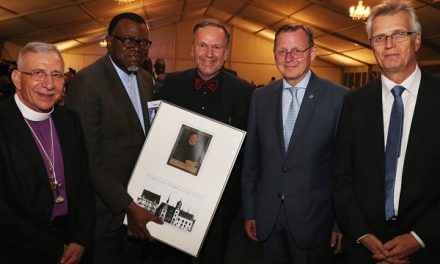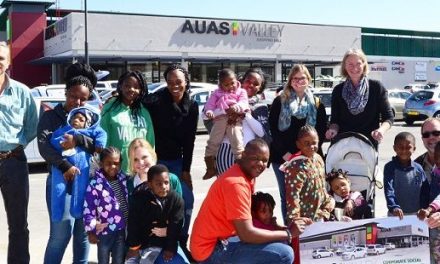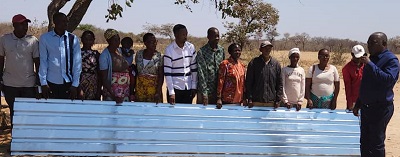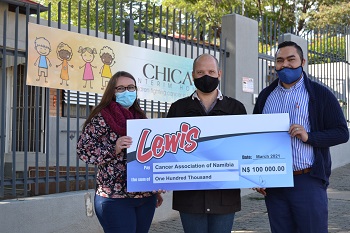
Health public private partnership awarded

The colourful parade of Mister Sister clinics has become a familiar and welcome sight for many rural communities as the mobile healthcare service traverses large distances to reach the more than 15,000 registered patients.
This programme has been voted recently by a panel of public-private partnership experts as the winner in a PPP Short Stories competition.
According to the panel of experts, this programme is “a unique PPP arrangement that leverages both government and private sector resources to cover the cost of service delivery and has played a vital role in upgrading health infrastructure and the quality of services delivered to rural communities.”
Mister Sister is a public-private partnership (PPP) run by PharmAccess Namibia and funded by the Heineken Africa Foundation to bring quality primary healthcare within reach of low and middle income people. It started as a pilot programme in 2010, with support from the Heineken Africa Foundation, the Ministry of Health and Social Services; several local private sector companies, Namibia Medical Care, Health Insurance Fund (with funding from the Dutch government), USAID and the Ohlthaver & List (O&L) Group.
Namibia’s large landmass, difficult terrain, and sparse population make accessing basic healthcare services a challenge for many Namibians. With five trucks that have been converted to mobile clinics, Mister Sister serves more than 15,000 registered patients.
Mister Sister uses a unique mixed-funding model to leverage both public and private sector resources in covering the cost of delivering these primary healthcare services. The Ministry of Health supplies the necessary drugs and vaccines used by the mobile clinics. Commercial farms and other local private businesses cover the costs of bringing healthcare to their employees. Donor funding and corporate social responsibility contributions help fill the gaps in funding. Namibia Medical Care, for example, a local private medical aid fund, cross-subsidizes funds to provide services for underserved communities in the Khomas Region.
Ingrid de Beer, general manager of PharmAccess Namibia said “This model allows us to provide quality services across the board. Whether in the shanty towns or at private companies, all our patients receive the same quality care. They’re treated by the same nurses and they get the same medicines.” The mobile clinics are part of the quality improvement programme SafeCare, which stimulates constant monitoring and improvement on the quality of their services.”













































